Today’s paid search accounts are often very big, containing hundreds of keywords. In order to optimize these accounts, search specialists have to carry out many repeating, time-consuming tasks that get boring after a while. With all these repetitive tasks, it is becoming more challenging for search specialists to reserve time for strategic thinking.
An example of a repetitive and time-consuming task is Keyword Sculpting. Therefore, with this post we want to share our approach and solutions for:
1- Keyword sculpting
2- Negative sculpting
3- True ad group performance
In collaboration with marketing engineers within Greenhouse Group, we were able to decrease the effective sculpting time while ensuring quality and performance.
Keyword sculpting
Keyword sculpting is a restructuring technique that helps to optimize your account. The performance of different keywords can be optimized by creating separate ad groups with dedicated ads responding to the intent of a keyword. In this way, the quality score can be increased while the average cost per click (CPC) decreases.
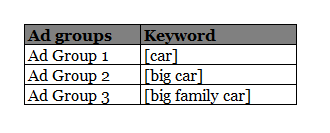
In the example above, ‘big car’ and ‘big family car’ have a separate ad group in order to treat these keywords separately. This maximizes the results on keyword level.
In collaboration with the marketing engineers within Greenhouse Group we created a solution which helps search specialists to expand keyword lists with valuable search terms in an automated way. An internal tool retrieves the search terms data via the API connection of Google Ads. The search specialists can select search terms that should be added to keyword lists. The tool translates the selection of the search specialists into a file with settings for new ad groups, keywords and ads ready to be imported in Google Ads Editor. This approach enables the expansion of keyword lists in different accounts with much less effort.
Negative sculpting level I
Accounts often have different keyword match types. When the modified-broad match type is used, ads automatically run on relevant variations of the keywords. This allows to attract more visitors to the website and identify new valuable search terms for keyword lists.
However, when keywords with different match types are used, these keywords can trigger an ad for the same search query. In the example below, the search term ‘car’ can be triggered by ad group 1 (exact match) as well as by ad group 4 (modified-broad match).
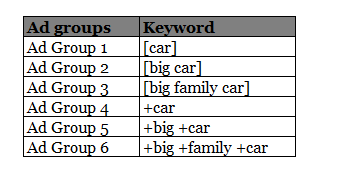
By using a script that excludes exact match keywords from ad groups containing modified-broad match keywords this can be prevented. Thus the search term ‘car’ cannot be triggered in ad group 4 anymore, as shown in the example below.
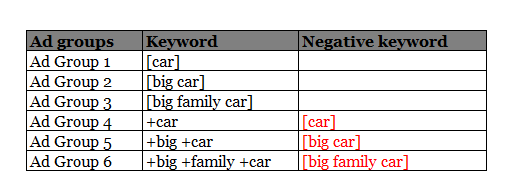
Negative sculpting level II
Excluding exact match keywords in ad groups containing modified-broad match keywords does not solve the whole puzzle. Search terms can be triggered in ad groups with different modified-broad match keywords. In the example above, the search terms of ‘+big +car’ (ad group 5) can be triggered by ad group 4 as well, because the search terms of ‘big car’ contain the word ‘car’. Based on relevance, this is something that should be prevented, since ad group 5 is more relevant for the search terms than ad group 4.
To create a solution to this problem, we again collaborated with the marketing engineers. They really make our lives easier :). A new solution was built in the tool that identifies ad groups with modified-broad match keywords that overlap. Through the automation of adding negative keywords to ad groups, search specialists save time. Moreover, for accounts with hundreds of keywords it is nearly impossible to add all these negatives manually. An example of adding negative keywords automatically is shown below.
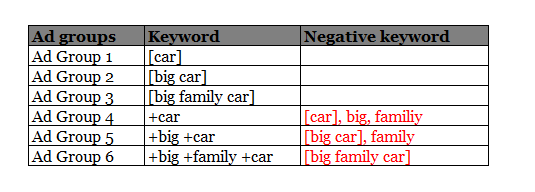
True ad group performance
Negative keyword sculpting improves the performance of ad groups with modified-broad match keywords. Since search terms will only be triggered in the most relevant ad group with the most suitable CPC bid, quality scores increase by 5-10%.
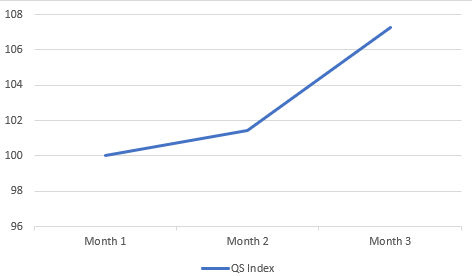
The improvement in quality score has an influence on the average CPC of ad groups with modified-broad match keywords. The average CPC decreases by 15-20%.
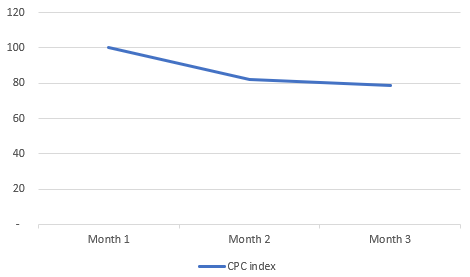
Why is keyword sculpting important?
Paid search is all about maximizing relevance and minimizing costs per click. Search terms should be approached in the most relevant way and with the best CPC bid. Instead of giving Google Ads the control it is now possible to stay in control of which search terms are being triggered by what keywords (and ad groups), hereby maximizing the quality and performance of the ads. Collaboration between search specialists and marketing engineers can provide solutions for an automated approach of repetitive tasks like keyword sculpting that save time.





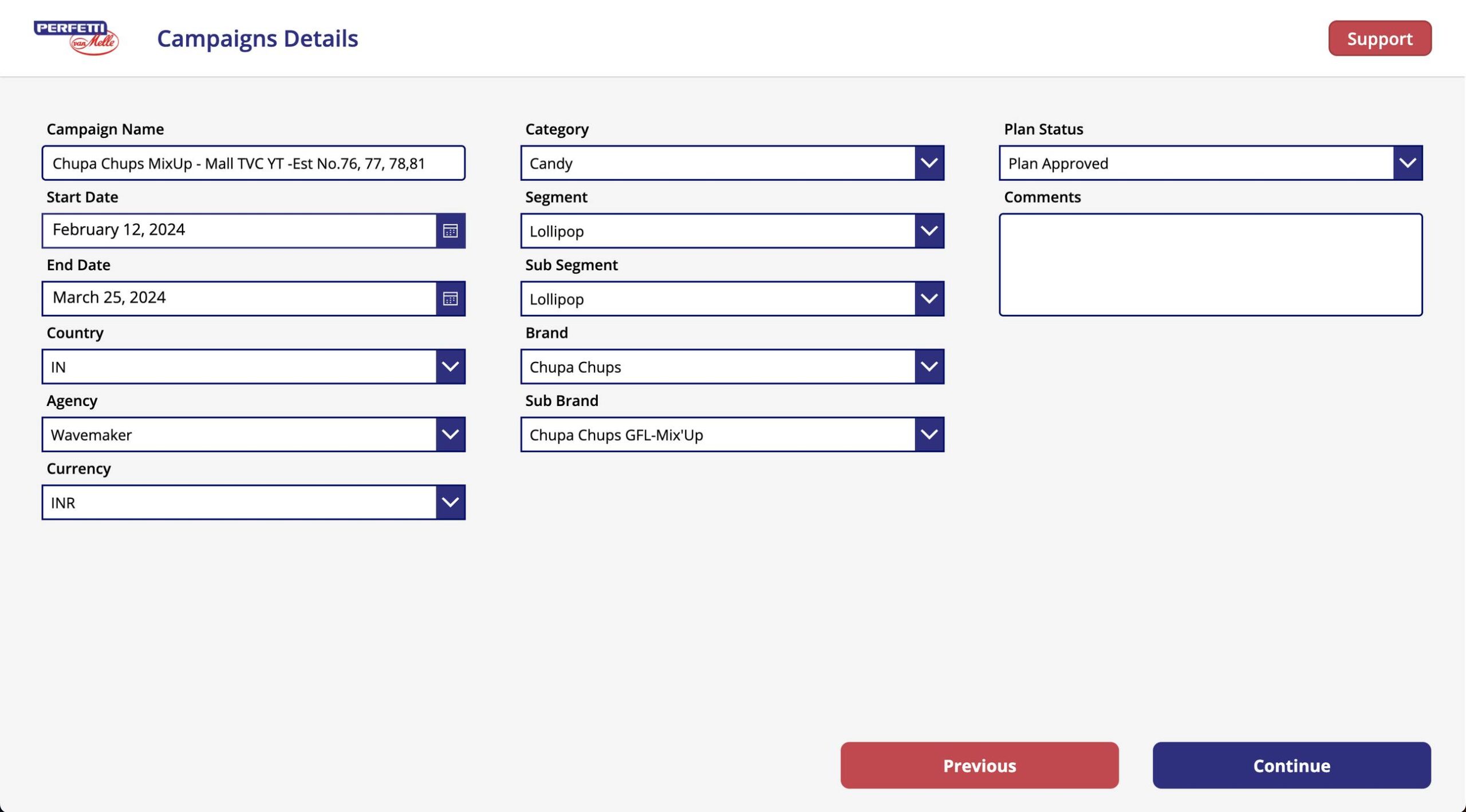
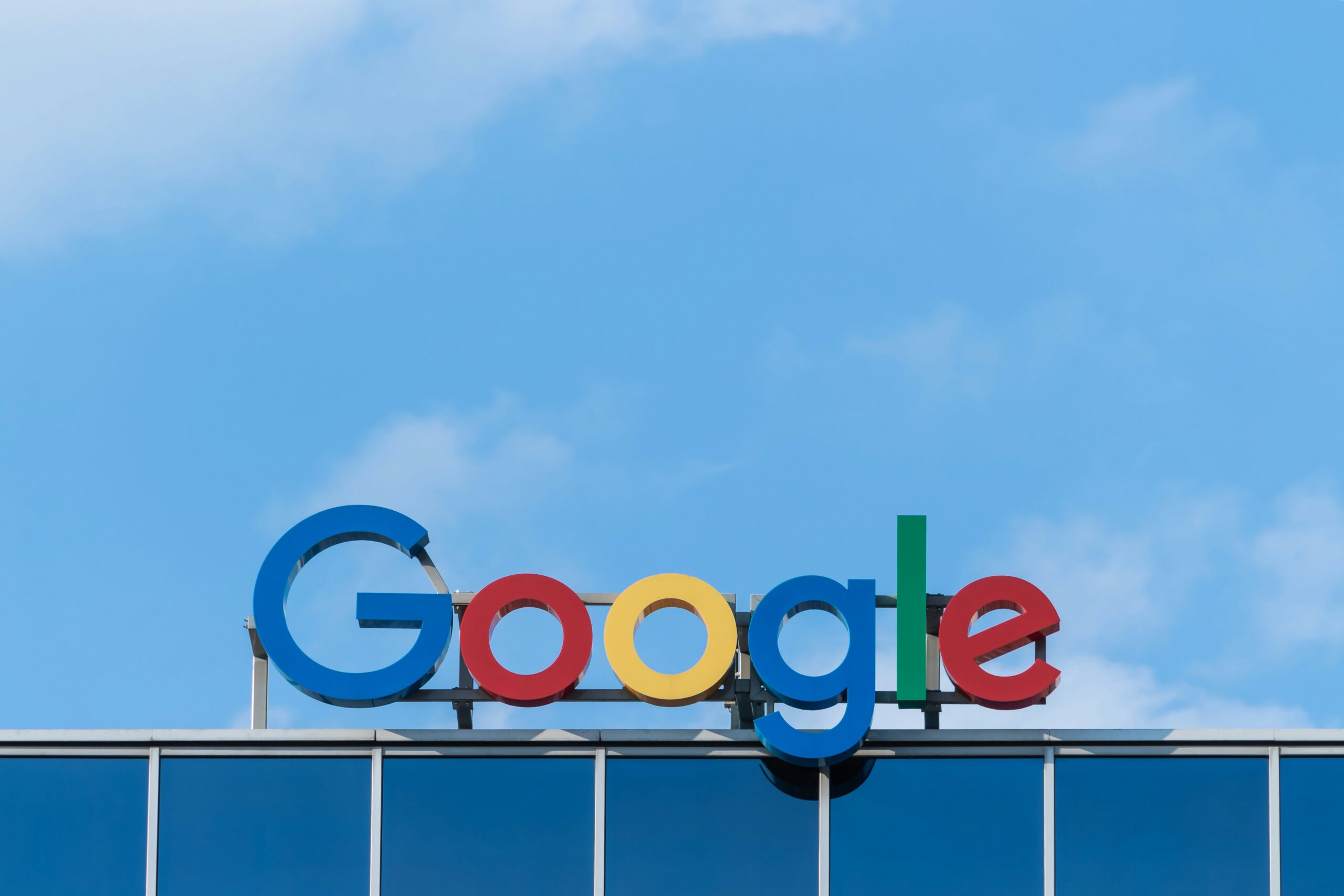
Leave a Reply
You must be logged in to post a comment.